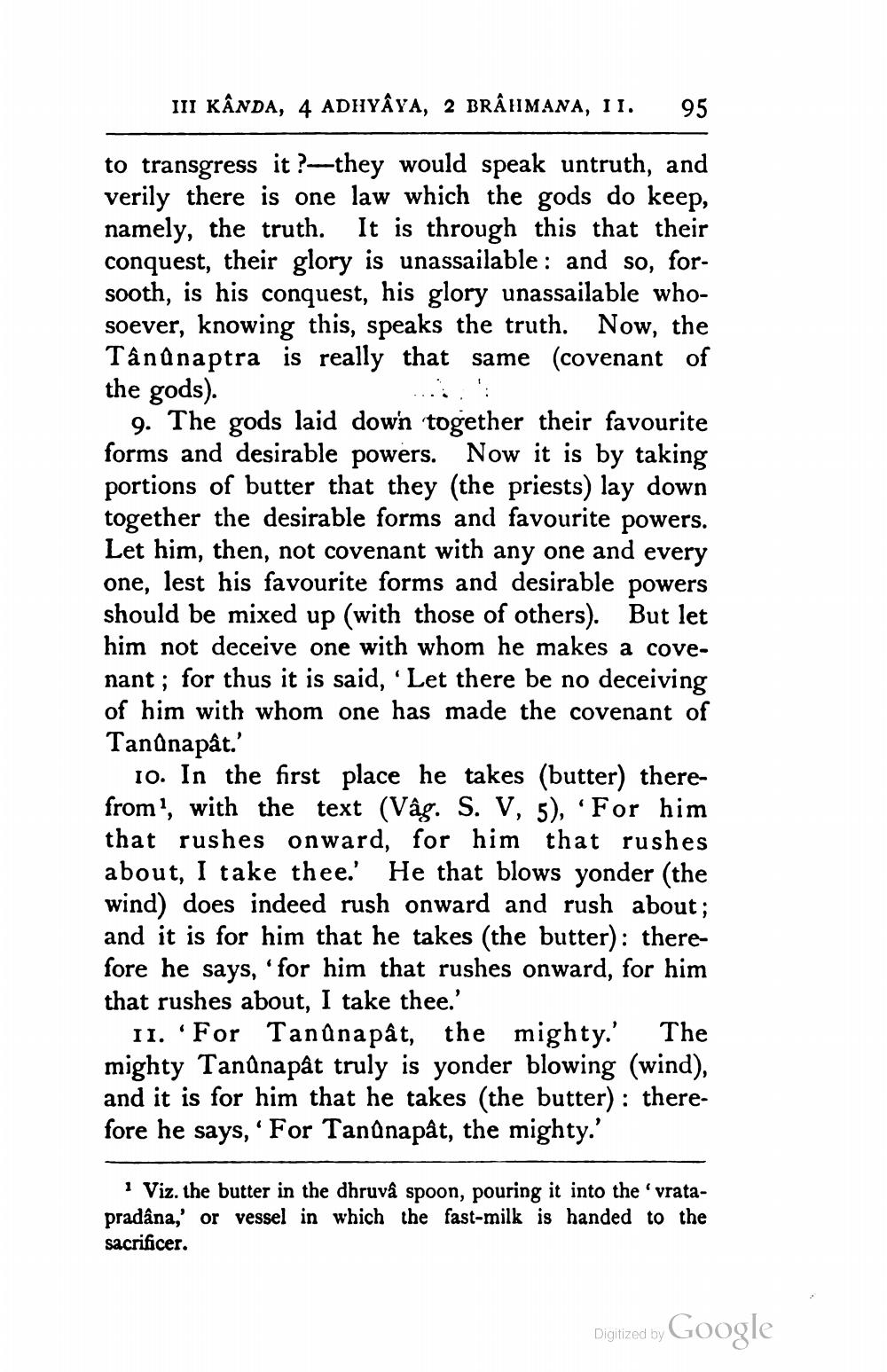________________
III KÂNDA, 4 ADHYAYA, 2 BRÂUMANA, 11.
95
to transgress it?--they would speak untruth, and verily there is one law which the gods do keep, namely, the truth. It is through this that their conquest, their glory is unassailable: and so, forsooth, is his conquest, his glory unassailable whosoever, knowing this, speaks the truth. Now, the Tânûnaptra is really that same (covenant of the gods).
9. The gods laid down together their favourite forms and desirable powers. Now it is by taking portions of butter that they (the priests) lay down together the desirable forms and favourite powers. Let him, then, not covenant with any one and every one, lest his favourite forms and desirable powers should be mixed up (with those of others). But let him not deceive one with whom he makes a covenant; for thus it is said, 'Let there be no deceiving of him with whom one has made the covenant of Tananapât.'
10. In the first place he takes (butter) therefrom', with the text (Vâg. S. V, 5), 'For him that rushes onward, for him that rushes about, I take thee.' He that blows yonder (the wind) does indeed rush onward and rush about; and it is for him that he takes (the butter): therefore he says, 'for him that rushes onward, for him that rushes about, I take thee.'
11. 'For Tanûna pât, the mighty. The mighty Tanûnapát truly is yonder blowing (wind), and it is for him that he takes (the butter) : therefore he says, ' For Tanûnapât, the mighty.'
1 Viz. the butter in the dhruva spoon, pouring it into the 'vratapradana,' or vessel in which the fast-milk is handed to the sacrificer.
Digitized by Google




